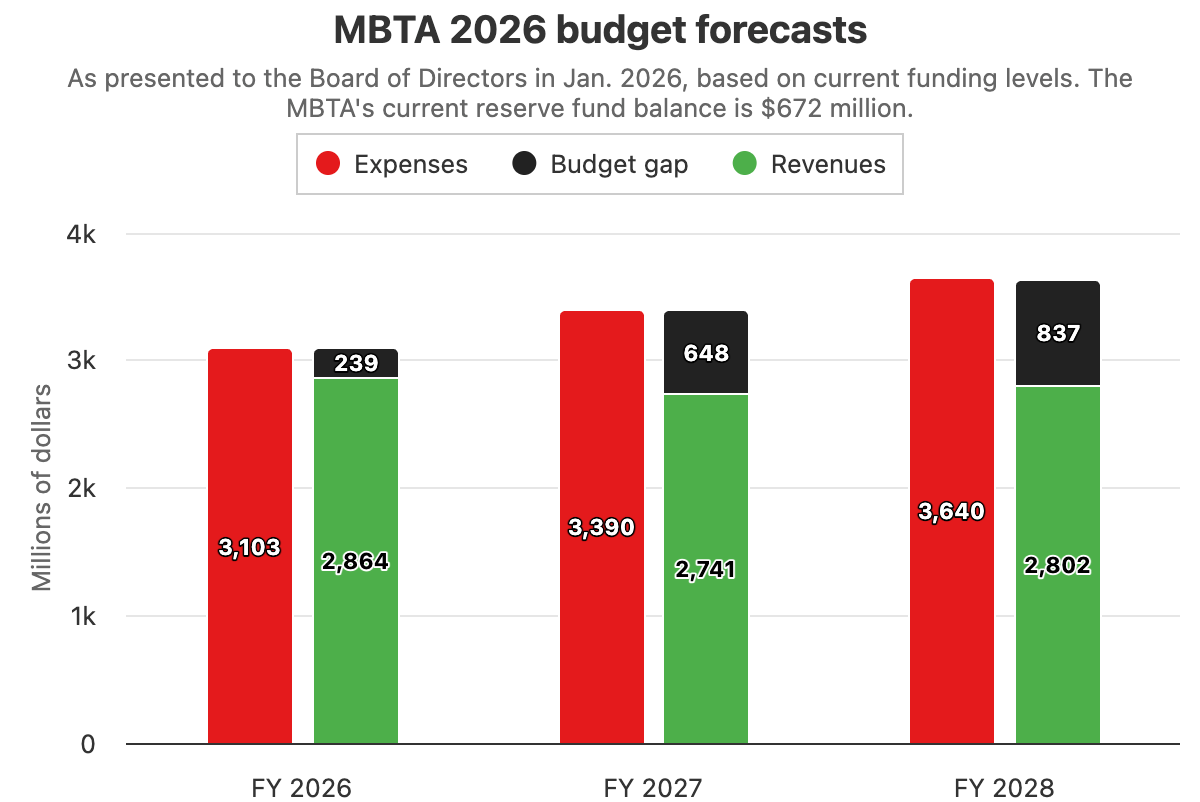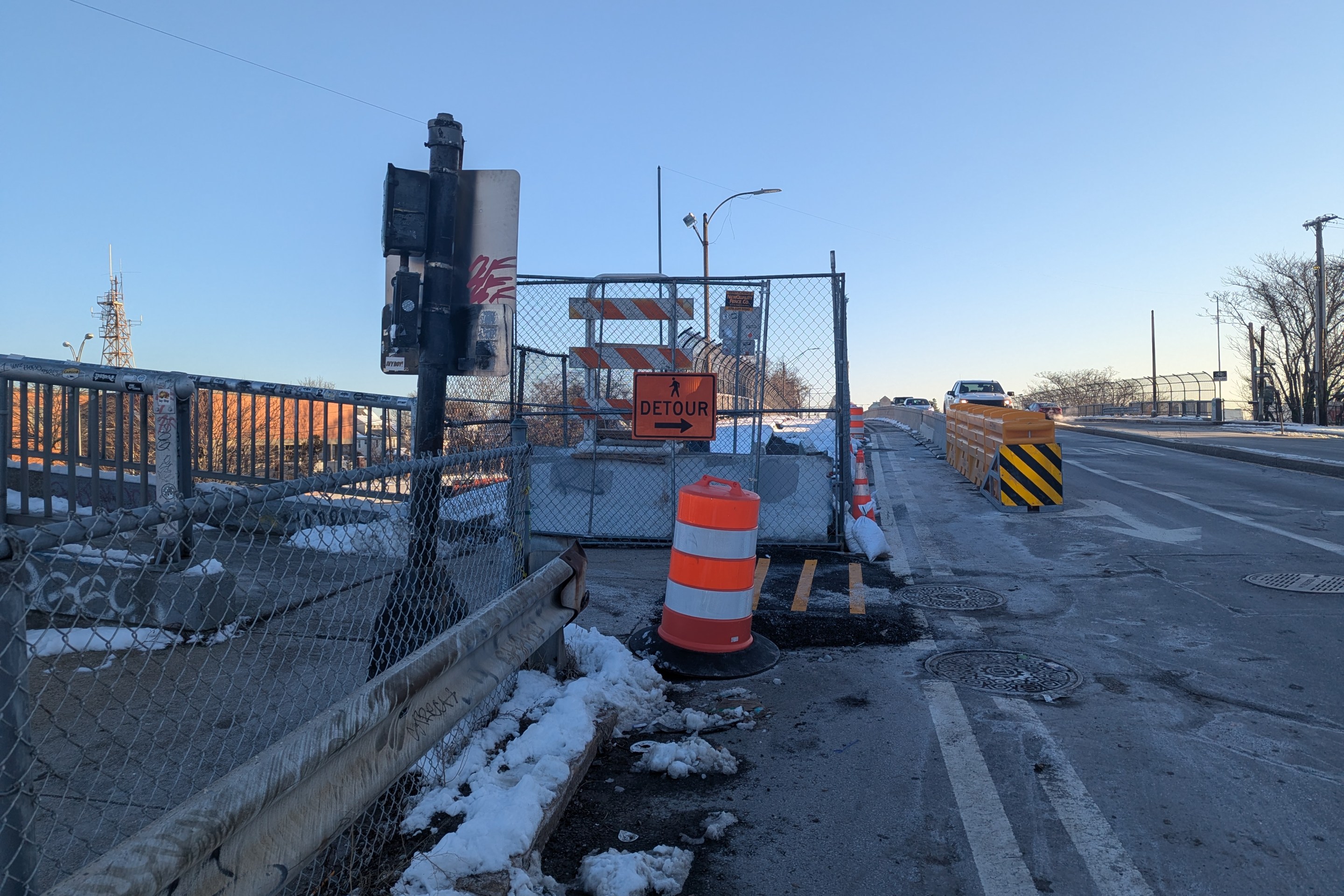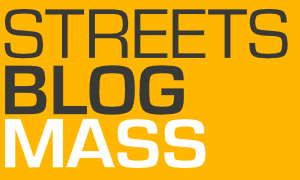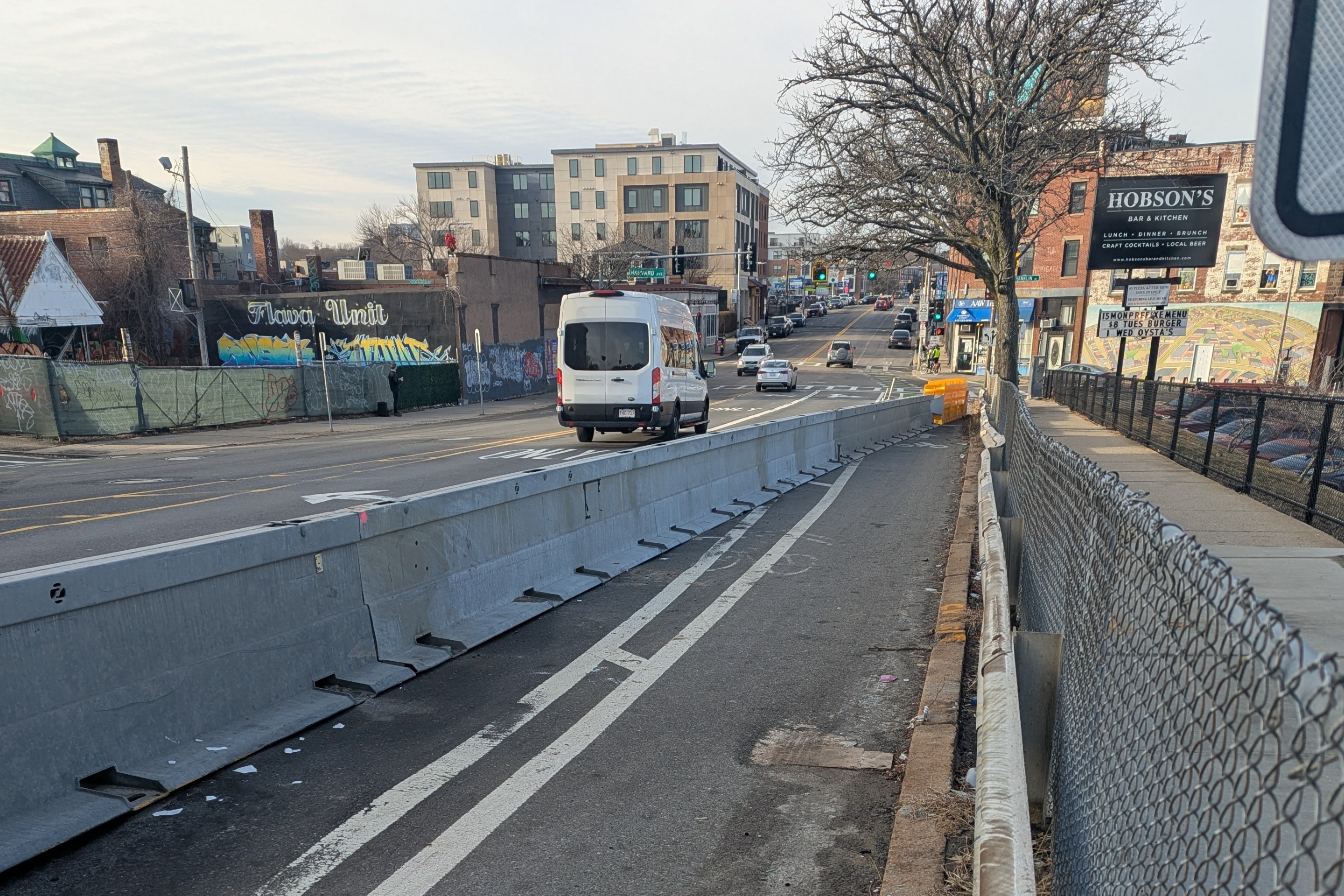On the evening of August 21st, the MBTA hosted a public meeting on Proposed Regulation 703 CMR 6.00, also known as the “Issuance and Enforcement of Automated Bus Lane and Bus Stop Violations” as part of the agency’s “Better Bus Project”.
The agency is currently soliciting bids from companies that can help it install and operate cameras for a new bus-mounted automated enforcement system, which would let the agency automatically identify and issue fines against vehicle owners caught blocking bus stops and dedicated bus lanes.
The Origins
Last year in May, the automated bus lane enforcement conversation hit a pivotal point with the release of bus-mounted camera footage from the Peabody school system that recorded of 3,412 separate instances in which drivers did not stop for school buses, putting children's lives at risk.
By the end of 2024, two bills legalizing automated traffic law enforcement with cameras on buses bill were headed to the Governor’s desk for her signature – one for school buses, and one for public transit buses.
In April of this year, the MBTA put out a request for information for technology firms to help identify vehicles illegally blocking bus stops and bus lanes as well as issue fines against perpetrators.
Just a few weeks ago, the MBTA put out their proposed set of rules and regulations to uphold the automated enforcement, and engaged in a 21-day public comment period soliciting feedback on their proposed rules.
The August 21 meeting was one of their community outreach and engagement efforts, with a public hearing held at 10 Park Plaza but also accessible by Zoom where people could come forward to weigh in on the law, its consequences, its enforcement, and more.
The Meeting
Rachel Morris and Alexandra Halliwell provided an overview of the regulations and the importance of bus rider priority, and from there, the doors were open for public comment.
The presenters noted often cited data that nearly 40 percent of daily T riders use the bus, many of whom identify with any combination of being low-income, a minority, or not having access to a vehicle.
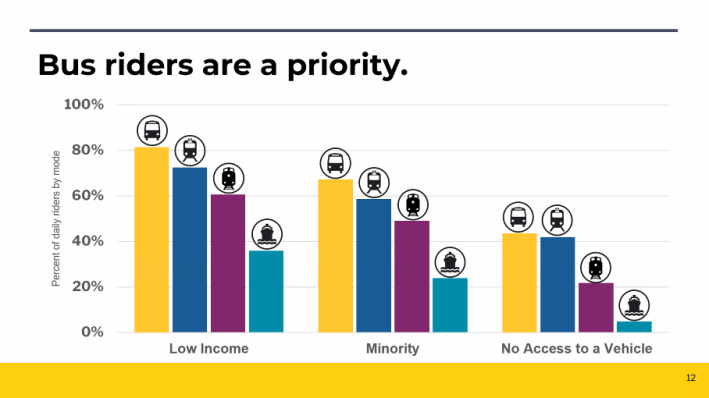
Given this information, it is an accessibility, safety, and transportation justice issue when drivers block any of the MBTA’s 7,000 bus stops across the region.
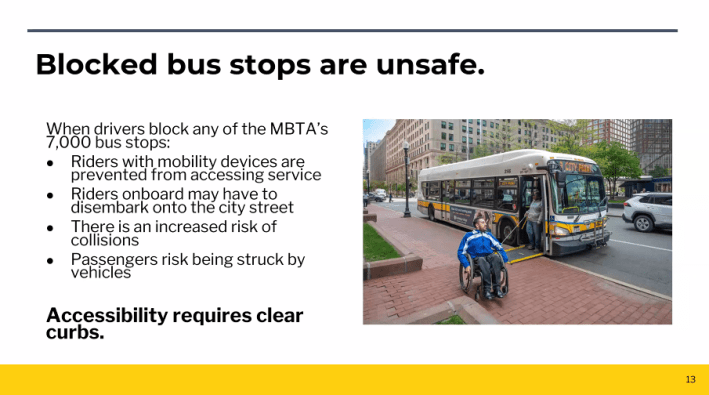
The bill proposes fines for parking at a bus stop at $100 dollars, and parking or standing in a bus lane ranging from $25 to $125 dollars. Some fines are higher for commercial vehicle drivers than passenger vehicle drivers, and some exceptions can be made, like making room for an emergency vehicle or funeral procession, or if the driver was complying with an officially-posted traffic signal, sign, or marking.
Warnings may be issued in lieu of a fine, if it is a first offense that did not cause any danger to public health, or security, or if the warning was fairly given to everyone in a similar situation, such as from blocking a newly designated bus-only lane.
Participants contributed both in person and via Zoom, and residents from Arlington to Chelsea and everywhere in between weighed in with unanimous support with testimony about the importance of buses for their communities’ livelihoods, as well as the challenges they face as riders from drivers who block bus stops and bus lanes.
Participants were largely in agreement that the city is better when the buses run better, citing examples in New York, Washington D.C., Los Angeles, and even Europe to prove the efficacy of this type of enforcement.
However, there were a number of concerns that sparked some differing and passionate responses.
One equity issue raised repeatedly was the structure of the fines, which escalate according to how many times a driver gets caught violating the law.
Some were in support of the tiered structure and believe that the consequences are apt for the “entitlement” of drivers.
“You don't accidentally find yourself parked in a bus lane without realizing it… the fines should reflect the fact that this is a meaningful choice that people make, not caring about everyone they're impacting,” said Jacob Lezberg of Cambridge.
Kenya Berman agreed, saying “If you got a car, then you also assume the consequences of having a vehicle… I am not for this kind of penny pinching and this warning thingy or nothing like that. You get a car, the consequences are that you can get a ticket if you have any violation, whether it's parking, or a moving vehicle violation… That's my stance on that.”
Many others, however, believe that the current fine system will disproportionately impact those experiencing financial hardships, exacerbating economic inequity.
Those speakers requested the T to look into payment plans, hardship waivers, and reduced fines based on need.
Another commonly raised concern came from riders in Chelsea and Lynn, many of whom were affiliated with local environmental justice organization GreenRoots. In both English and Spanish, those riders discussed their communities’ above-average reliance on an efficient bus system, given how they only have access to the MBTA by way of the Silver Line, the Rockport Commuter Rail line, and several bus routes that get them around the Greater Boston area.
Other speakers spoke about the law’s impact on safety on the region’s streets. Catherine Benedict, a close friend of Minh-Thi Nguyen, spoke about her grief after the driver of a box truck took Nguyen’s life last June. A local teacher spoke of her desire for her students’ families to feel safe in their home and communities, even if they don’t own cars.
“I never could have imagined I would be spending my free time coming to things like this, but I truly don't want anyone else to experience losing a friend on the streets of Greater Boston.” – Catherine Benedict
The energy of the meeting participants made it clear that it is imperative to convince people regardless of need, that the bus and public transit are not just options, but the way forward in terms of navigating Boston and its future.
At the close of the hearing, the MBTA is to review all comments received, and any change to the proposed regulation will be presented to the MBTA Board of Directors for a vote at the September board meeting.
From there, once the MBTA files this with The Secretary of the Commonwealth, the rules will be published and become effective two weeks later. There is no definitive date for this yet, as the public comment needs to be taken into consideration, and the legislation could undergo some changes to reflect that.

